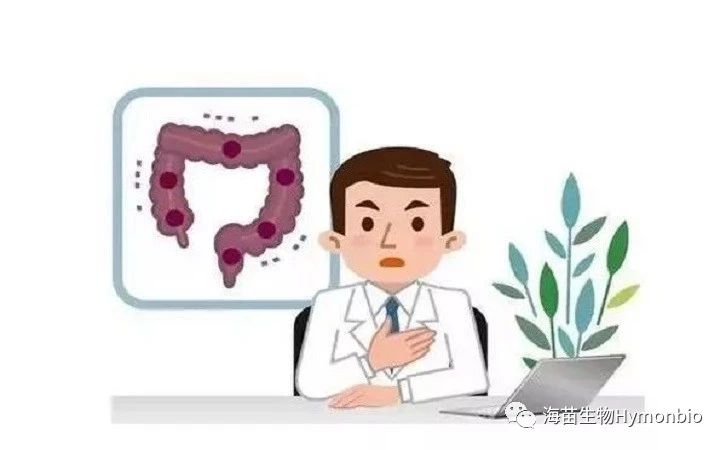Colorectal cancer is the fourth deadliest cancer in the world, with 900,000 deaths by it every year, and the incidence is on the rise. In China, more than 500,000 new diagnoses are made each year, most having been discovered in mid- to late-stages with poor prognosis. Therefore, it is vital to carry out early screening to reduce morbidity and mortality. The occurrence of intestinal polyps and colorectal cancer is related to factors such as high fat and high calorie diet, tobacco and alcohol, genetics, sedentary behavior, obesity, lack of exercise, and inflammatory bowel disease. So, what kinds of good habits can prevent colorectal cancer?
Eat at least 5 types of vegetables and fruits each day. Avoid or reduce eating fried foods and foods rich in cholesterol, such as lard, fatty meat, animal offal, etc. Instead, eat appropriate amounts of foods containing monounsaturated fatty acids, such as olive oil, tuna, etc. Under the premise of maintaining staple food consumption, mix in some coarser grains. Eat foods rich in dietary fiber, such as konjac, soybeans and their products, fresh vegetables and fruits, algae, etc. Eat an appropriate amount of walnuts, peanuts, dairy products, seafood, etc. to supplement vitamin E.
2. Strengthen Your Workouts
Exercise regularly, and control your weight within the normal range to avoid obesity. In particular, white-collared workers are prone to sitting for long periods of time. When sedentary, peristalsis of their intestines and stomach are weakened, easily trapping metabolic wastes and harmful ingredients, etc. in the colon and stimulating the intestinal mucosa. Moreover, sitting for long periods of time can also cause poor blood circulation in the abdominal cavity, pelvic cavity, and lumbosacral regions, leading to a decline in the intestinal immune barrier function and increasing the risk of colorectal cancer.
3. Quit Smoking and Reduce Alcohol Intake
Tobacco and alcohol can bring dark spots to the liver and lungs. In fact, they are far more powerful than you think. They are related to at least seven types of cancers, including colorectal cancer. The Chinese Nutrition Society recommends: men should not exceed 25g of alcohol in a day, equivalent to 750 mL of beer, 250 mL of wine, or 75 g of 38-degree liquor, or 50 g of higher alcohol percentage; women should not exceed 15g of alcohol in a day, equivalent to 450 mL of beer, 150 mL of wine, or 50 g of 38-degree liquor. Studies have shown that smokers have a 34% higher risk of dying from colorectal cancer than nonsmokers. The longer they smoke, the higher the death rate.
4. Regular Check-Ups and Correct Medication
Be wary of warning signs and early symptoms of colorectal cancer, such as changes in bowel habits, alternating between diarrhea and constipation, bloody or blood stools, flattened and thin stool shape, etc. Although some studies suggested the intake of aspirin and vitamin supplements may reduce the occurrence of colorectal cancer, drugs themselves have side effects and need to be taken under the guidance of a professional physician.
5. Lifestyle
Develop the habit of regularly defecating every morning. Don’t spend too much time reading books, watching TV, playing with computers or with mobile phones. Go to bed early at night, don’t stay up late, and ensure good sleep and good health.
Early Detection
During the process of intestinal carcinogenesis, there are genetic mutations and changes. By detecting cell-free DNA in the blood, early diagnosis of colorectal cancer can be made. Since early detection is the key to preventing colorectal cancer, we can move forward with corresponding screening. There are limitations in colonoscopy, such as limited resources. Using convenient and reliable blood gene testing, patients can be initially screened and enriched to identify high-risk groups, then determine whether they should undergo colonoscopy. This way, it becomes possible to rationally allocate medical resources.
HymonBio uses unique, high-efficiency Magnetic Bead Extraction Technology and patented Molecular Lock Amplification Technology to greatly improve sensitivity and specificity of blood testing. By using blood samples, testing becomes convenient and solves the public’s fear of colonoscopy and time constraints, improving screening compliance for colorectal cancer.
Post time: Dec-15-2022



